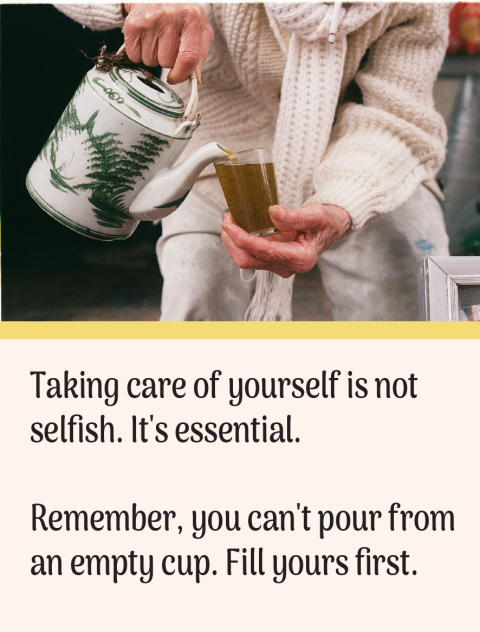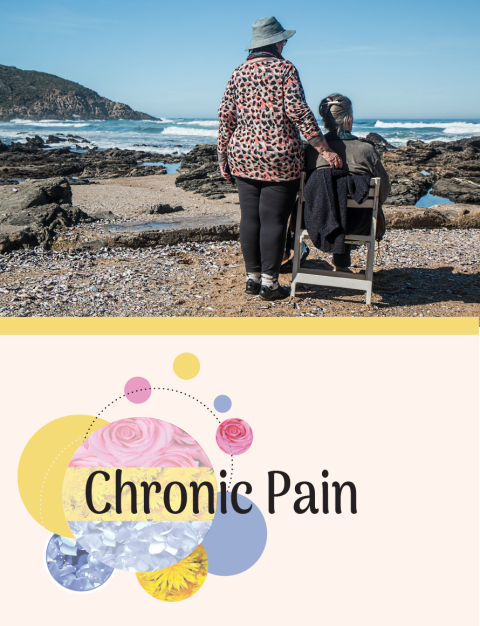Making You the Priority
Prioritizing the basics in our daily lives can sometimes be a challenge, especially when you have chronic pain, major health concerns, and are juggling multiple responsibilities and commitments. With mindfulness and an intentional approach plus possibly a bullet journal, you can ensure that the essentials receive the attention they deserve and you have the strength to do all the things you want.
Here are some strategies to help you prioritize the basics:
- Set Clear Priorities: Begin by recognizing the importance of basic daily requirements in maintaining your overall well-being. Acknowledge that taking care of your physical, mental, and emotional health is not selfish but necessary for you to show up as your best self in all aspects of your life.
- Create a Routine: Establishing a consistent daily routine can be immensely helpful in prioritizing the basics. Designate specific times for activities such as showering, brushing teeth, and eating meals. By treating these tasks as non-negotiable appointments with yourself, you’re more likely to follow through and make them a regular part of your day.
- Time Blocking: Consider using time blocking techniques to allocate dedicated time slots for different aspects of self-care. For example, set aside a specific time for exercise, meditation, meal preparation, and engaging in activities that bring you joy. By scheduling these activities, you’re more likely to give them the attention they deserve.
- Simplify and Delegate: Evaluate your daily routine and identify areas where you can simplify or delegate tasks. Look for opportunities to streamline processes and eliminate unnecessary stressors. For instance, meal planning and prepping can save time and ensure you have nutritious meals readily available. Delegate tasks when possible, whether it’s sharing household chores with family members or outsourcing certain responsibilities.
- Mindfulness and Presence: Incorporate mindfulness into your daily activities. When showering, for example, focus on the sensation of the water against your skin, the aroma of your soap, and the soothing sound of the running water. By being fully present in these moments, you infuse them with a sense of purpose and enjoyment.
- Flexibility and Adaptability: Recognize that life can sometimes throw unexpected challenges and disruptions your way. It’s important to remain flexible and adaptable, adjusting your routines and priorities as needed. Embrace the ebb and flow of life while maintaining a steadfast commitment to your overall well-being.
I believe in prioritizing the management of chronic pain and overall well-being in every aspect of our lives. My goal is to empower individuals to embrace their identities, and nurture their well-being while dealing with chronic pain. I’m here to support your journey towards holistic self-care, focusing on the promotion of physical, mental, and emotional health. Celebrating our unique paths within the diverse spectrum of humanity, we can foster open conversations and support one another in navigating the challenges of living with chronic pain. Let’s Talk About Chronic Pain
- Self-Awareness and Reflection: Take time to reflect on your current habits and routines. Are there any areas where you consistently neglect the basics? Are there tasks or activities that drain your energy and take away from your well-being? By developing self-awareness, you can identify areas for improvement and make conscious choices to prioritize what truly matters.
- Accountability and Support: Find an accountability partner or support system that can help you stay on track with your priorities. Share your goals and aspirations with someone you trust, who can provide encouragement and hold you accountable. This can be a friend, family member, or even a wellness coach or mentor who can guide and motivate you along your journey.
- Avoid Information Overload: In today’s digital age, it’s easy to become overwhelmed by the constant influx of information and the pressure to follow every new wellness trend. While staying informed is important, it’s equally crucial to discern what truly aligns with your needs and values. Focus on evidence-based practices and advice from trusted sources, allowing yourself to filter out the noise and concentrate on what works for you.
- Practice Self-Compassion: Remember that prioritizing the basics is an act of self-love. Be kind to yourself when setbacks occur or when you struggle to maintain consistency. Practice self-compassion by acknowledging your efforts, celebrating small victories, and offering yourself understanding and forgiveness when things don’t go as planned. Treat yourself with the same care and compassion you would extend to a loved one.
These strategies, with you commitment to prioritize the basics for yourself and your life, create a solid foundation for your forever well-being.
Daily basics, self-love and self-care are not luxuries but necessities. An investment in YOU, your overall health, happiness, and long-term vitality. Embrace the power of the basics and watch as they positively impact every aspect of your life.



